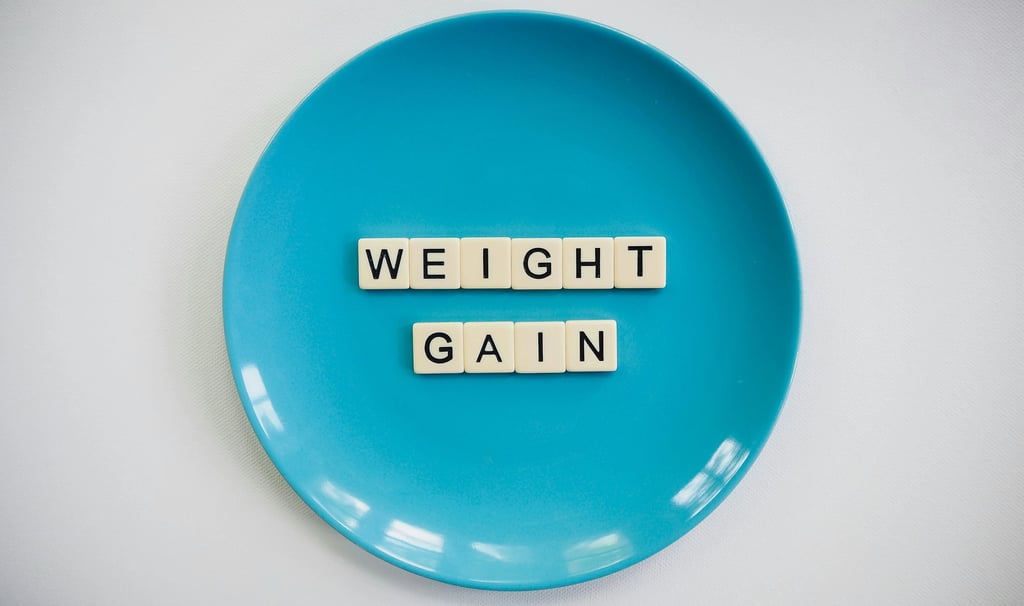Weight Gain in Menopause: Why It Happens and How to Fix It
This article explores Weight Gain in Menopause: Why It Happens and Fixes with science-backed insights, natural remedies, and lifestyle advice.
NATURAL REMEDIES


Introduction
When I turned 48, I noticed something frustrating: the scale kept creeping up even though I hadn’t changed my diet or exercise routine. My favorite jeans felt tighter, and I couldn’t understand why. At first, I blamed stress and long workdays. But soon, I realized it wasn’t just me—many of my friends in their late 40s and 50s were experiencing the same thing.
Weight gain during menopause is incredibly common, but that doesn’t make it less discouraging. The good news? Once I understood why it happens, I was able to make small, targeted changes that helped me regain control of my body and confidence. In this article, I’ll walk you through the real reasons behind menopause-related weight gain and share effective, natural strategies to manage it.
Why Does Menopause Cause Weight Gain?
1. Hormonal Changes
As estrogen levels decline, our metabolism slows down. Estrogen normally helps regulate fat distribution, keeping it around the hips and thighs. With lower levels, fat tends to accumulate around the abdomen. This is why many women notice a shift from a “pear-shaped” body to more of an “apple shape.”
2. Slower Metabolism
After age 40, muscle mass naturally decreases unless we actively maintain it. Less muscle means fewer calories burned at rest, which makes it easier to gain weight even without eating more.
3. Sleep Disruptions
Hot flashes, night sweats, and insomnia make restful sleep harder to achieve. Poor sleep increases cortisol (the stress hormone), which drives cravings for sugary and fatty foods while also encouraging belly fat storage.
4. Stress and Cortisol
Midlife often comes with new stressors—aging parents, career shifts, or empty-nest syndrome. Chronic stress raises cortisol, further fueling weight gain, especially around the waist.
My Personal Experience with Menopause Weight Gain
Between 48 and 50, I gained 7 kilos despite eating the same meals and going on my usual evening walks. I remember standing in front of the mirror thinking, “Is this just my new body now?”
The turning point came when I realized that my old habits weren’t enough for this new stage of life. I had to adjust—not punish myself, but adapt with compassion. Once I did, I lost 4 kilos in six months and, most importantly, felt energetic again.
7 Natural Fixes for Menopause Weight Gain
1. Prioritize Protein
Protein preserves muscle mass, which is crucial for metabolism. I began adding lean protein at every meal—eggs at breakfast, salmon or chicken at lunch, and beans or lentils for dinner.
2. Strength Training
Cardio helps, but strength training is non-negotiable during menopause. Two to three sessions a week of resistance training made a visible difference in my body composition.
3. Manage Sleep Hygiene
I improved my sleep by keeping my room cool, turning off screens one hour before bed, and practicing evening meditation. Once I slept better, cravings decreased significantly.
4. Balance Carbs Wisely
I didn’t cut carbs entirely (I love pasta too much), but I swapped refined carbs for whole grains and limited them at dinner. My blood sugar became more stable, and energy improved.
5. Reduce Alcohol
This was a tough one. Alcohol triggered night sweats for me and added unnecessary calories. Cutting back to an occasional glass of wine on weekends made a big difference.
6. Stress Management
Yoga and journaling became part of my weekly routine. Managing stress wasn’t just good for my mind; it helped my body release less cortisol.
7. Stay Hydrated
Dehydration can mimic hunger. I started carrying a water bottle everywhere, aiming for 2 liters a day.
When to Consult a Professional
If weight gain feels uncontrollable despite lifestyle changes, it may be time to see a doctor. Conditions such as thyroid imbalances, insulin resistance, or even certain medications can play a role. A gynecologist or endocrinologist familiar with menopause can help tailor solutions.
Final Thoughts
Menopause weight gain is real, but it isn’t permanent or inevitable. Once we understand that our bodies are simply changing, we can adjust our habits with compassion and strategy. Today, at 52, I’m not chasing the body I had at 25—I’m focusing on strength, energy, and health for this new chapter.
If you’re struggling with weight gain right now, remember: you’re not alone, and it’s not your fault. With the right adjustments, balance is absolutely possible.
What about you? Have you noticed changes in your weight since menopause started? Share your story in the comments—your experience might help another woman feel less alone.
Disclaimer: This article shares my personal experience and research. It is for informational purposes only and does not replace professional medical advice. Always consult your doctor before making significant health or lifestyle changes.
